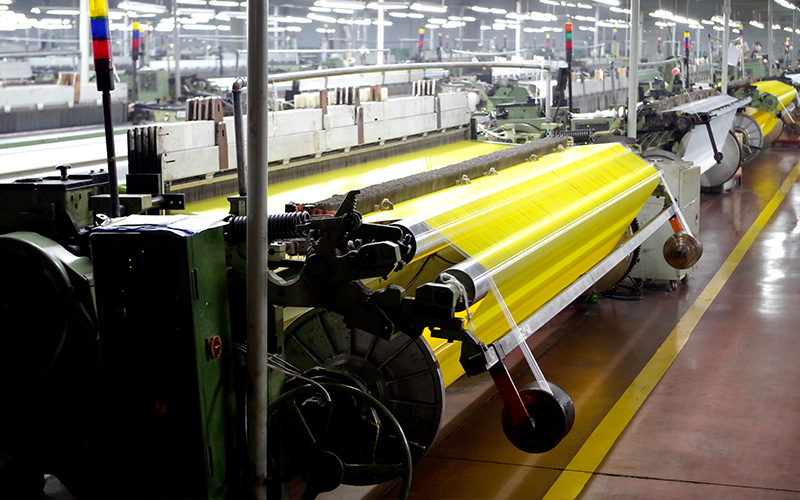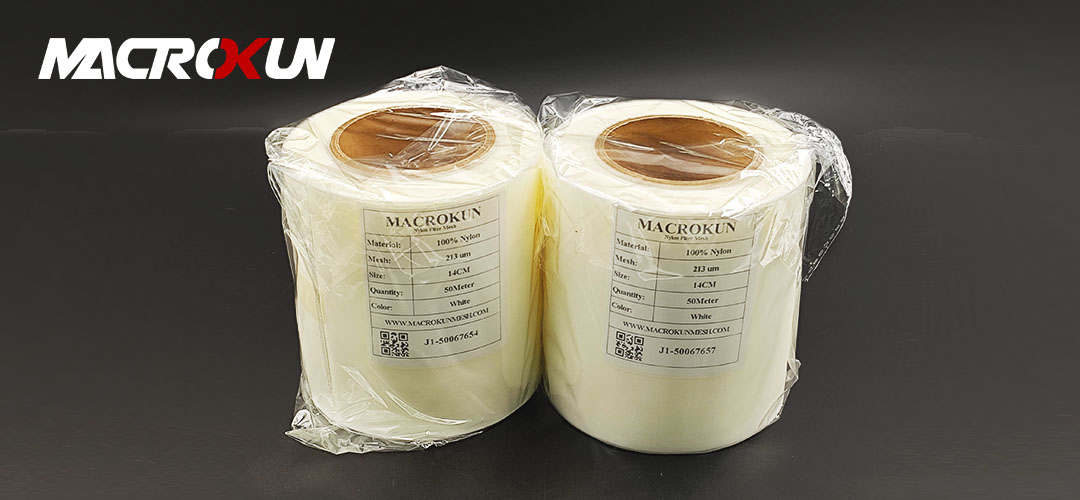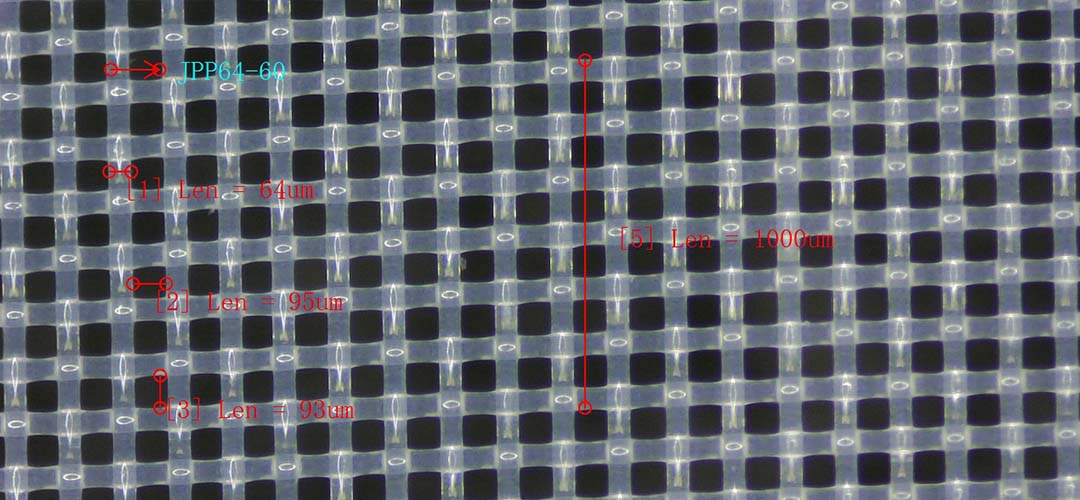Nylon mesh filter socks are an essential tool for many industries, including food and beverage, pharmaceuticals, and water treatment. These filter socks are designed to remove impurities and particles from liquids, ensuring a clean and pure final product. There are many benefits to using nylon mesh filter socks, including improved product quality, increased efficiency, and cost savings.
One of the primary benefits of using nylon mesh filter socks is the improved quality of the final product. By removing impurities and particles from liquids, these filter socks help to ensure that the end product is clean and pure. This is especially important in industries such as food and beverage and pharmaceuticals, where product quality is of the utmost importance. Using nylon mesh filter socks can help to prevent contamination and ensure that the final product meets the highest standards of quality.

In addition to improving product quality, nylon mesh filter socks can also help to increase efficiency in the production process. By removing impurities and particles from liquids, these filter socks help to prevent clogs and blockages in equipment, which can lead to downtime and decreased productivity. This can result in significant cost savings for businesses, as downtime can be costly and impact the bottom line. By using nylon mesh filter socks, businesses can ensure that their production process runs smoothly and efficiently, leading to increased productivity and cost savings.
Another benefit of using nylon mesh filter socks is their versatility. These filter socks are available in a wide range of sizes and configurations, making it easy to find the right filter sock for any application. Whether you need a filter sock for a small-scale operation or a large industrial process, there is a nylon mesh filter sock that will meet your needs. This versatility makes nylon mesh filter socks a popular choice for many industries, as they can be easily customized to fit specific requirements.
When selecting a nylon mesh filter sock, there are several factors to consider. The first factor to consider is the micron rating of the filter sock. The micron rating refers to the size of the particles that the filter sock can capture. A lower micron rating indicates a finer mesh that can capture smaller particles, while a higher micron rating indicates a coarser mesh that can capture larger particles. The micron rating of the filter sock should be chosen based on the size of the particles that need to be removed from the liquid.
Another factor to consider when selecting a nylon mesh filter sock is the material of the filter sock. Nylon mesh filter socks are available in a variety of materials, including nylon, polyester, and polypropylene. Each material has its own unique properties and advantages, so it is important to choose the material that best suits your specific needs. Nylon mesh filter socks are a popular choice for many industries due to their durability, flexibility, and resistance to chemicals and abrasion.

In conclusion, nylon mesh filter socks offer many benefits for businesses in a variety of industries. From improving product quality to increasing efficiency and cost savings, these filter socks are an essential tool for many production processes. When selecting a nylon mesh filter sock, it is important to consider factors such as the micron rating and material of the filter sock to ensure that it meets your specific requirements. By choosing the right nylon mesh filter sock, businesses can improve their production process and ensure a clean and pure final product.
When it comes to selecting the right nylon mesh filter sock for your filtration needs, there are several factors to consider. The type of material used in the construction of the filter sock, the micron rating, the size and shape of the filter sock, and the intended application are all important considerations that can impact the effectiveness and efficiency of your filtration system.
One of the first things to consider when choosing a nylon mesh filter sock is the type of material used in its construction. Nylon is a popular choice for filter socks due to its durability, flexibility, and resistance to chemicals and abrasion. However, there are different grades of nylon available, so it is important to select a filter sock made from high-quality nylon that is suitable for your specific filtration needs.
The micron rating of a filter sock is another important factor to consider. The micron rating refers to the size of the particles that the filter sock can effectively capture. A lower micron rating indicates a finer mesh that can capture smaller particles, while a higher micron rating indicates a coarser mesh that is better suited for capturing larger particles. It is important to select a filter sock with the appropriate micron rating for your specific application to ensure optimal filtration efficiency.
The size and shape of the filter sock are also important considerations when choosing the right nylon mesh filter sock. Filter socks come in a variety of sizes and shapes, including round, square, and rectangular, as well as different lengths and diameters. The size and shape of the filter sock should be selected based on the size of the filtration system and the flow rate of the liquid being filtered. It is important to choose a filter sock that fits properly in your filtration system to prevent bypass and ensure effective filtration.
Finally, the intended application of the filter sock is a crucial factor to consider when selecting the right nylon mesh filter sock. Different applications require different types of filter socks with specific characteristics to achieve optimal filtration results. For example, a filter sock used for water filtration may require a finer mesh and a lower micron rating than a filter sock used for oil filtration. It is important to consider the specific requirements of your application when choosing a filter sock to ensure that it is capable of effectively capturing the particles and contaminants present in the liquid being filtered.

In conclusion, selecting the right nylon mesh filter sock is essential for achieving optimal filtration results. By considering factors such as the type of material used in the construction of the filter sock, the micron rating, the size and shape of the filter sock, and the intended application, you can choose a filter sock that meets your specific filtration needs. Taking the time to carefully evaluate these factors will help you select a high-quality filter sock that provides efficient and effective filtration for your system.
When it comes to selecting the right nylon mesh filter sock for your specific needs, there are several factors to consider. From the size and shape of the filter sock to the micron rating and material composition, each element plays a crucial role in determining the effectiveness of the filter sock in capturing particles and debris. In this step-by-step guide, we will walk you through the process of selecting the right nylon mesh filter sock for your application.
The first step in selecting the right nylon mesh filter sock is to determine the size and shape that will best fit your filtration system. Measure the diameter and length of your filter housing to ensure that the filter sock will fit snugly and securely. It is important to choose a filter sock that is slightly larger than the dimensions of your filter housing to prevent any bypass of particles around the filter sock.
Next, consider the micron rating of the nylon mesh filter sock. The micron rating refers to the size of the openings in the mesh material and determines the size of particles that the filter sock can capture. A lower micron rating indicates a finer mesh material that can capture smaller particles, while a higher micron rating indicates a coarser mesh material that can capture larger particles. Consider the type of particles you are trying to capture and select a filter sock with an appropriate micron rating.
Another important factor to consider when selecting a nylon mesh filter sock is the material composition. Nylon mesh filter socks are available in a variety of materials, including nylon, polyester, and polypropylene. Each material has its own unique properties and advantages, so it is important to choose a material that is compatible with the chemicals and temperatures present in your filtration system.
In addition to size, micron rating, and material composition, it is also important to consider the construction of the nylon mesh filter sock. Look for a filter sock that is well-constructed with reinforced seams and a sturdy drawstring closure to ensure a secure fit in your filtration system. A well-constructed filter sock will be more durable and effective in capturing particles and debris.
Finally, consider the cost and availability of the nylon mesh filter sock. Compare prices from different suppliers and consider factors such as shipping costs and lead times. It is also important to consider the availability of replacement filter socks to ensure that you can easily replace the filter sock when needed.
In conclusion, selecting the right nylon mesh filter sock is a crucial step in maintaining the effectiveness of your filtration system. By considering factors such as size, micron rating, material composition, construction, and cost, you can choose a filter sock that will effectively capture particles and debris and provide long-lasting filtration performance. Follow this step-by-step guide to select the right nylon mesh filter sock for your specific application and ensure optimal filtration results.
Pre: Enhancing Air and Liquid Filtration with Nylon Mesh Filter Panels
Next: How Nylon Mesh Filter Elements Improve System Efficiency

MACROKUN has established long-term and stable cooperative relations with many transportation companies such as China Post, DHL, FEDEX, USPS, UPS, etc. Of course, MACROKUN can also provide air and sea transportation. The powerful logistics system enables all MACROKUN'S Printing Mesh, Filter Mesh and Filter Bags and so on to be easily and efficiently transported to any place. For quotes and inquiries, please email our sales team.





